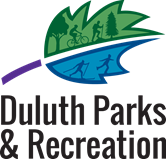Duluth Natural Areas Program
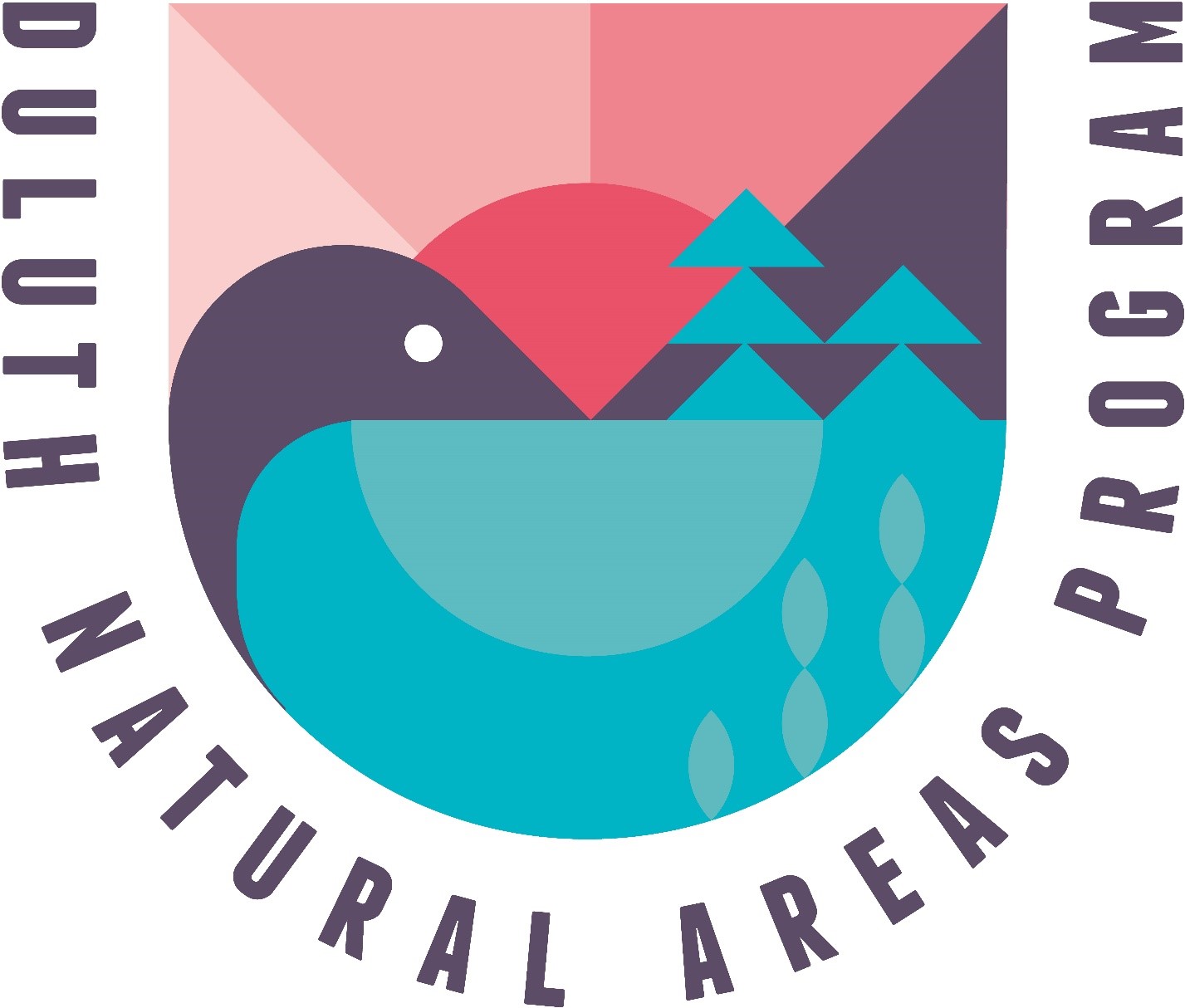
Program Overview:
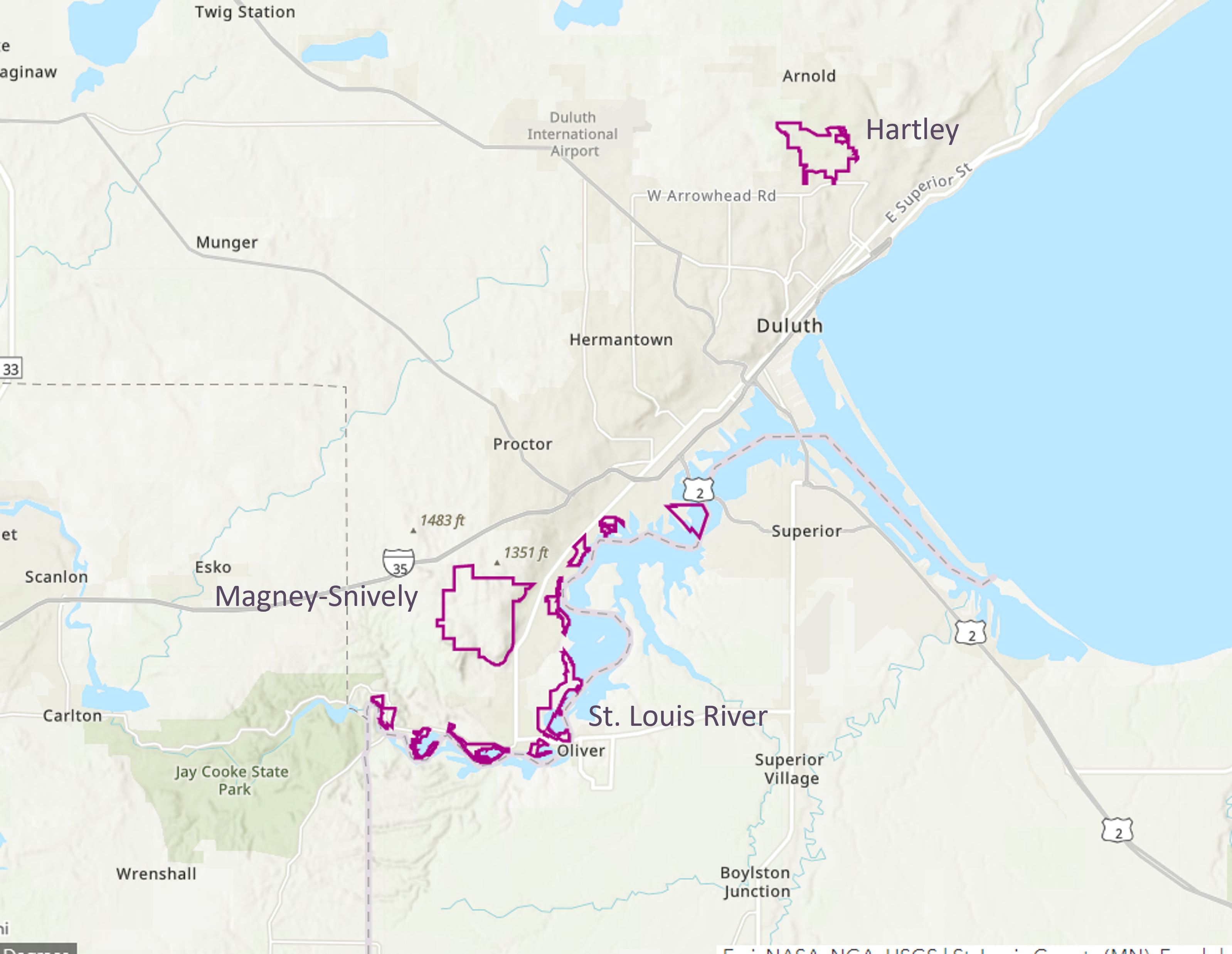
The Duluth Natural Areas Program is designated by city ordinance (Chapter 2, Article XXIX) to designate certain lands with environmental value as permanently protected natural places. A link to the ordinance and the guidelines for implementing the ordinance are provided below under supporting materials. Duluth citizens have long recognized the value of these places to provide both natural resource protection and human sanctuary. Designating these lands ensures everyone in Duluth will always have access to these special places where they can appreciate nature and enjoy the outdoors. In doing so, Duluth preserves its natural heritage for the public good by:
- Ensuring the city can better manage Duluth’s forests, streams, and wetlands
- Supporting diversification of our region’s economy
- Promoting the well-being and happiness of our citizens and visitors
- Maximizing resiliency for a changing climate through the services these lands provide (e.g., controlling stormwater runoff, supporting diverse plant communities)
The City is committed to preserving in perpetuity public lands as determined in accordance with the criteria and to offer the opportunity for voluntary preservation of similar lands owned by others. These criteria include plant and animal communities, habitat for special species, natural water features, important bird habitat areas, and geologic landforms.
Additional Information about the City's Natural Areas Program:
- City Ordinance Establishing Duluth Natural Areas Program (2002)
- Duluth Natural Areas Program Brochure
- Duluth Natural Areas Program Guidelines (Council Approved 09/9/2002)
- Imagine Duluth 2035 Comprehensive Plan Update - Open Space Policies and Strategies
Hartley Natural Area
The Hartley Natural Area includes one of the largest northern hardwood forests and wet meadows in the City. The park also has a long history of education and recreational activity related to the enjoyment, preservation and restoration of the natural environment.

Hartley Documents:
St. Louis River Natural Area
The St. Louis River Natural Area is not contiguous; it is made up of 9 separate City-owned lands in the St. Louis River Estuary. A critically important bird flyway, this corridor of coastal wetlands and forests holds great significance to our community, our tribal partners, and the Great Lakes ecosystem.

St. Louis River Documents:
Magney Snively Natural Area
Magney-Snively was designated as the first Duluth Natural Area in 2002. It has such ecological value that it was considered for designation as a Scientific and Natural Area by the MN DNR. Today this is a well-loved recreational and ecological treasure with two designated trout streams (Sargeant and Stewart) and several miles of Superior Hiking Trail running through it.
Magney-Snively consists of approximately 1,800 acres of 11 high quality native plant communities, one of which is the largest known Sugar Maple-Basswood forest in the area.
The City is currently updating the Management Plan for the Magney-Snively Designated Natural Area. The original plan was developed in 2002 and was quite brief, overly broad and custodial in nature. The updated plan will mimic the more modern plans for Hartley and the St. Louis River natural areas and will include prioritized protection and restoration projects with cost estimates and targeted completion dates. An Advisory Committee, made up of local natural resource professionals and representatives from the various recreational groups that use the area, is assisting the City with the plan update. Once complete, the City and partners can use the updated plan to help us seek funding for forest management, trail maintenance and water quality implementation projects. The timeline for this process is shown below.
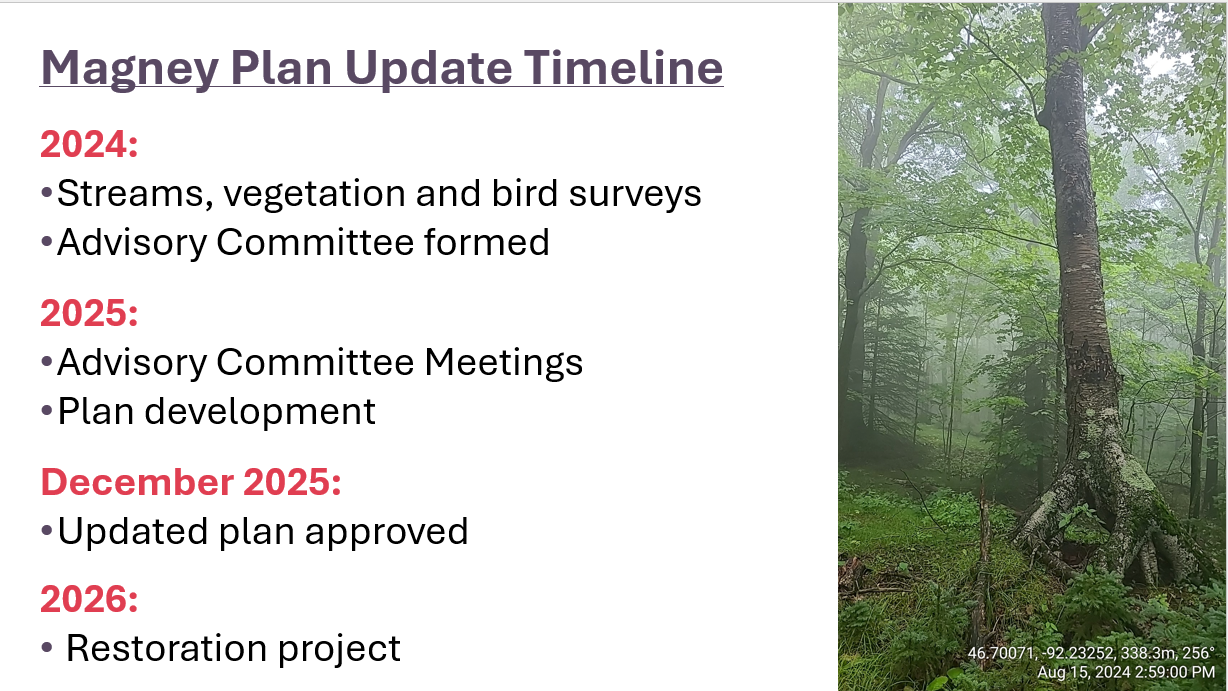
Magney-Snively DNAP Documents:
Proposed Amity-Lester-Hawk Ridge Designated Natural Area
On June 16, 2025, the Duluth City Council approved the nomination of Lester-Amity for provisional inclusion in the City's Designated Natural Area Program. The proposed boundary of this new natural area is shown below:
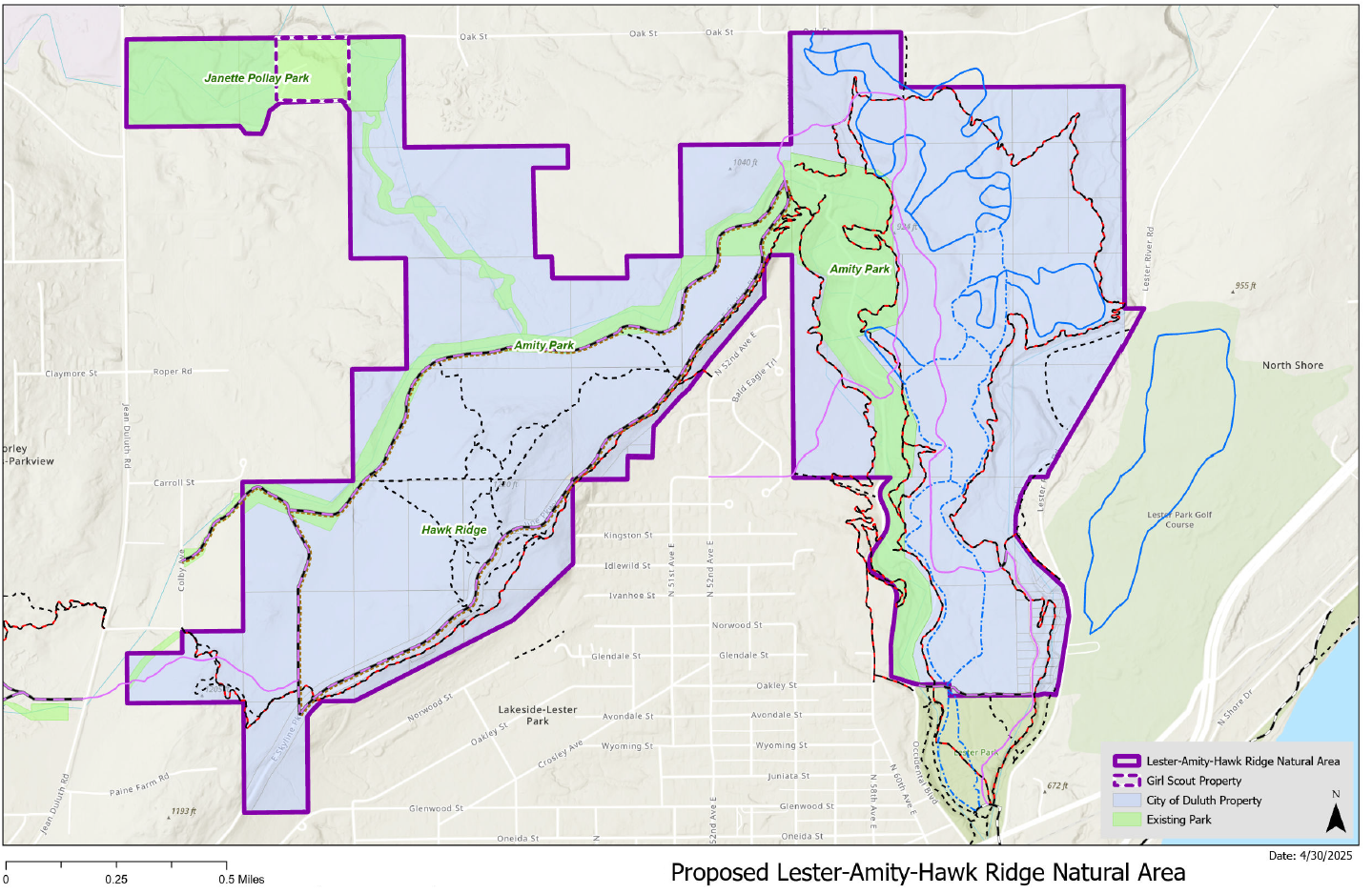
This area meets all five requirements for nominating a natural area:
- Significant Native Plan Communities Area - nine significant native plant communities
- Special Species Area - Canada Buffaloberry
- Important Bird Congregation Area - internationally recognized Hawk Ridge Nature Reserve
- Natural Water Features Area - Amity Creek and Lester River, state-listed designated trout streams
- Geologic Landform Area - Hawk Ridge, one of Duluth's most recognizable high points
The DNAP program requires that a management plan be completed for the area within one year. This plan provides a list of prioritized restoration and protection actions, target timelines, and approximate costs. The partners will work with City staff and the Natural Resource Commission to develop this plan. Natural Area designation becomes final once a management plan is approved by City Council.
This nomination was brought forth by the MN Land Trust, Hawk Ridge Bird Observatory, South St. Louis Soil and Water Conservation District, and MN Trout Unlimited. More information about this nomination can be found in the documents below.
Amity-Lester-Hawk Ridge Documents:
